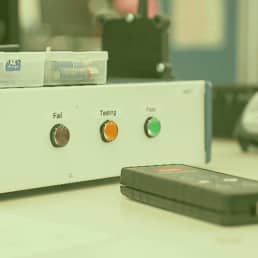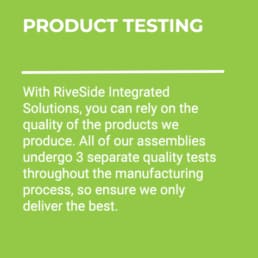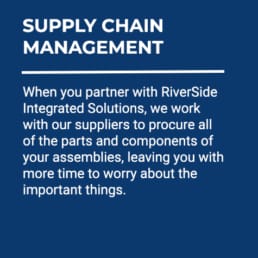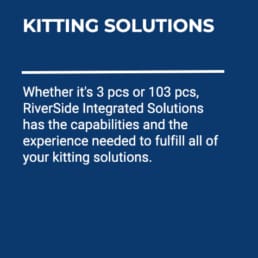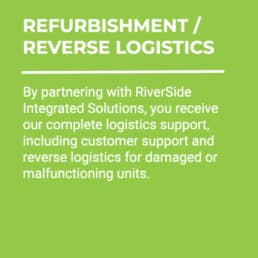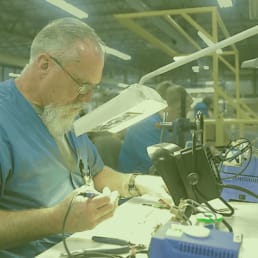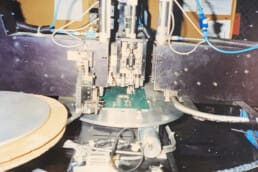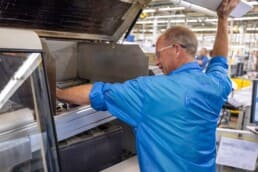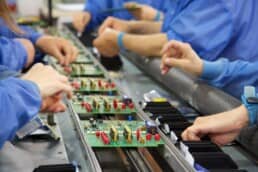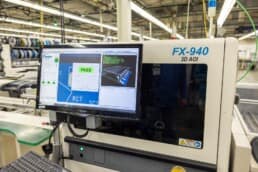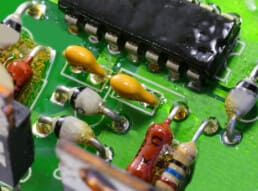4 Ways a Contract Manufacturer Adds Value to Your Organization
When original equipment manufacturers (OEMs) know that parts will arrive on time, in the correct quantities and at the proper revision, they can develop and execute the plans necessary to meet crucial business deadlines. This allows OEMs to ship products to customers on time or ensure that regional distributors have enough products for launch day. Predictability is the foundation of planning, which in turn provides the roadmap for growth.
A dependable contract manufacturer’s dependability makes tough choices more manageable for the OEMs they serve. For example, suppose an OEM performs the final assembly of a complex product in-house but relies on a contract manufacturer to provide one of the critical subassemblies. There’s a tight deadline on a Monday, needed subassemblies have yet to arrive, and shop floor management must decide whether to ask for overtime from the assemblers to meet a shipping deadline.
One problem: management doesn’t know if those workers will have anything to work on, even if they come in on Saturday. Not only is the final product’s shipping deadline in jeopardy, but the morale of the assemblers and technicians who would have to sacrifice half their weekend would be too.
Certainty
Full-service contract manufacturers are like a combination of a traditional contract manufacturer and a third-party logistics provider (3PL). Combining part procurement, assembly and distribution, this breed of contract manufacturers offers “one-stop shopping” to OEMs. With a partner like this, the OEM is free from the capital investment, personnel and other costs associated with keeping these functions in-house.
Besides cost savings, the other significant advantage of partnering with a full-service contract manufacturer is the much shorter lead times made possible by keeping all these processes under one roof.
Flexibility
Since contract manufacturers can scale production up and down as necessary to respond to market demand, firms who partner with them can better outmaneuver their competitors. They can also break into new markets as they open up and supply products just in time to meet spikes in demand.
OEMs also gain another kind of flexibility from using a contract manufacturer. By freeing up funds that would be otherwise reserved for capital investments (like facilities and machinery), contract manufacturers allow OEMs to be more financially flexible and more quickly divert money to unexpected, high-priority needs.
Those types of needs highlight just how connected flexibility is with certainty. For example, the ability to change priorities and schedules in response to a manufacturing issue requires knowing with certainty how long it takes to accomplish different tasks.
Focus
As OEMs grow in revenue, they have a habit of growing just as much in size. As a result, their attention tends to get diverted away from core innovation, strategic planning and other principal business activities. However, when they partner with a contract manufacturer, that doesn’t have to be the case.
By taking on the burden of parts management, purchasing & maintaining machinery and balancing production schedules, RiverSide Integrated Solutions’ contract manufacturing solutions can keep their OEM customers from getting bogged down in the minutiae of manufacturing. As a result, OEMs can stay laser-focused on their primary business challenges.
The OEM as a whole remains focused on core business values, as do individual employees.
For example, buyers no longer have to spend the time to order individual parts and juggle delivery dates, lead times, build schedules and shipping dates. They can focus instead on more thoughtful, strategic planning since they can rely on the predictable delivery of subassemblies and assemblies.
Similarly, quality control personnel no longer have to perform first article inspection and receiving inspection on those parts to ensure that the components coming in from suppliers match the required dimensions and tolerances.
When OEMs cut time from their assembly process, they also cut money spent. That money can then be invested in training and equipment, which multiplies worker productivity, making the OEM leaner and more competitive.
Expertise
Contract manufacturers naturally build up and preserve a vast pool of technical knowledge by focusing on details such as procurement, assembly, testing equipment and training on behalf of multiple customers. This knowledge base is valuable expertise that the OEM would otherwise have to pay for.
Standard design for manufacturing (DFM) reviews are only one way OEMs benefit from their contract manufacturer’s extensive knowledge. From knowing how—and when—to use each of the various settings of a digital multimeter when testing a PCBA to being able to spot a misaligned mechanical assembly, modern manufacturing requires plenty of technical knowledge to function smoothly.
Contract Manufacturers Provide Much More Than “Value-Add”
OEMs need to view contract manufacturers as business value multipliers. The combined benefits of fundamental supply chain predictability, operational nimbleness, increased focus on core business values and access to vast technical expertise produce compelling business value for companies looking to manufacture their next great product.
About RiverSide Integrated Solutions
RIS is an advanced contract manufacturer providing robust solutions in circuit board assembly and product assembly. We employ more than 350 people and provide services to OEMs worldwide. We operate two state-of-the-art manufacturing facilities within the US.
With all of the choices in contract manufacturers out there, we know it can be challenging to find someone who understands your business model and has your best intentions in mind. RIS has always proven to be a win-win-focused relationship.
As your one-stop shop, we have the capabilities, capacity, quality assurance standards and resources to support all of your manufacturing needs. We understand that supply chain management is complex and very time-consuming, so we urge our customers to utilize us in the fullest capacity.
Our total-package solutions include:
- Extensive supply-chain network
- Full box-build assembly
- Dedicated Program Team
- Warehousing, kitting and drop-shipping capabilities
- Reverse logistics
- Flexible order fulfillment
- Scalability to meet your needs
Contact us today at (507) 523-3220 to see how we can help with your manufacturing project, or click contact us for a quote.



